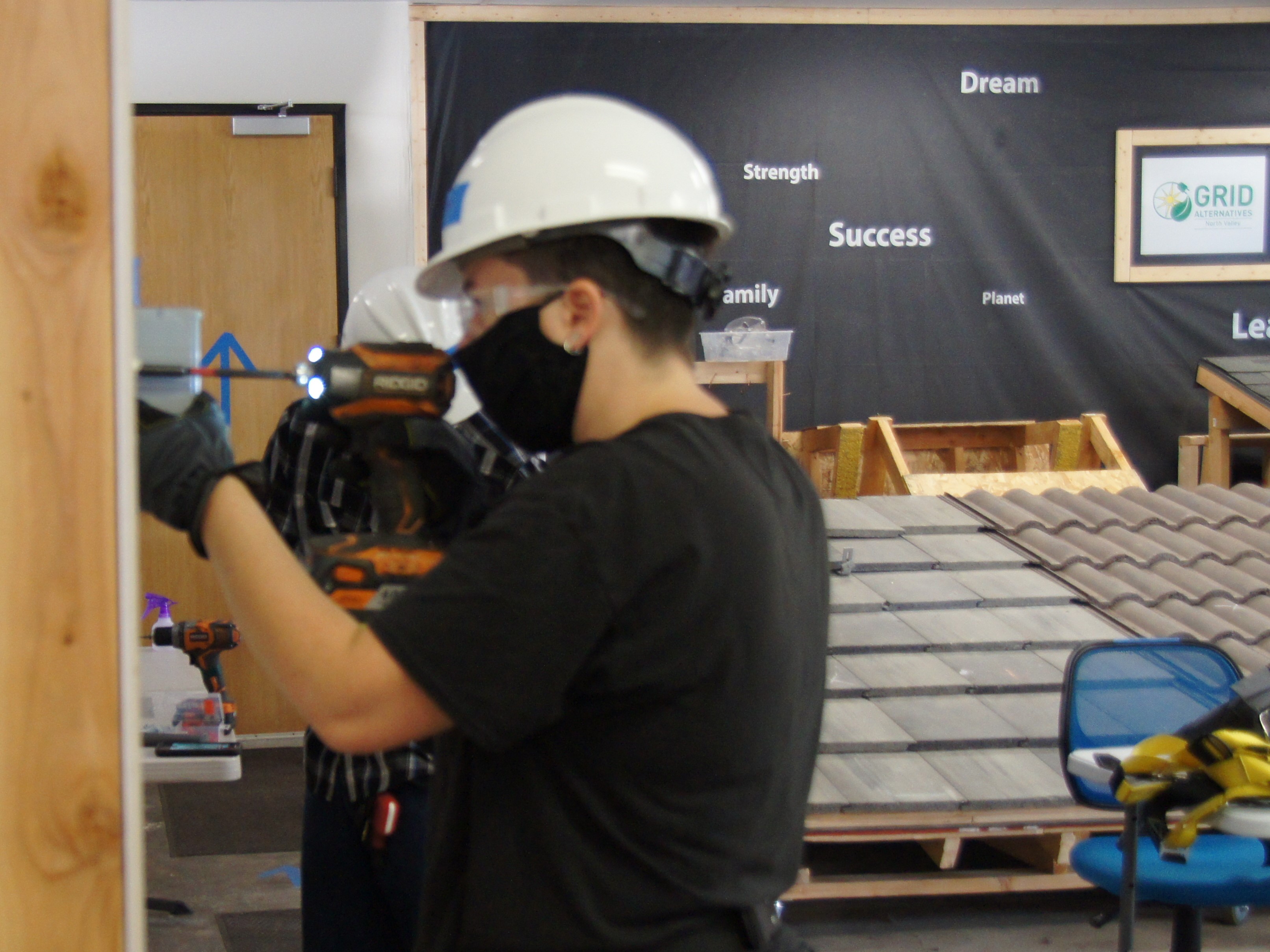It’s easy to think that a significant amount of time and money is required to get the necessary qualifications to get into the solar industry. However, with GRID Alternatives North Valley, the process of becoming a solar installer can be a lot easier than expected. There are fewer barriers to becoming a solar installer, as most employers are looking for training or on-the-job experience, not a bachelor’s degree. As part of GRID’s mission of building community-powered solutions to advance economic and environmental justice through renewable energy, we provide a workforce development program to help provide a pathway to a livable wage through good jobs in the solar industry.
One recent graduate, Audrey, was enrolled in a job preparation program through Sacramento nonprofit, Women’s Empowerment, which referred her to GRID Alternatives’ solar Installation Basics Training (IBT) program.
“I thought it was too good to be true!” In September, she attended our Women in Solar virtual panel to learn more and immediately signed up for our IBT cohort starting the following week.
Many technical training programs are unpaid or cost a fee, making it difficult for many to afford the time off. With GRID’s IBT program, we provide a completion stipend in exchange for the trainee’s time and dedication to our comprehensive education program to help underserved communities access these resources. We cover the “soft skills” that many companies look for - like how to work in a team, resume writing, and conflict resolution - as well as the more technical basics, like how to handle power tools properly.
“Before I did IBT, I really didn't know a lot about the solar industry, other than I was interested in it,” she told us. For Audrey, there are many benefits to the solar industry. “There’s the environmental factor, the feel-good points every time I do a job,” as well as the physically active appeal to those who prefer not to work in an office-based job.
 Compared to similar industries, solar wages are competitive and often above the national average (Solar Job Census, 2018). “I was doing Postmates and other odd jobs, but with Postmates, there was way more competition because there’re so many people out of work and doing this kind of thing.”
Compared to similar industries, solar wages are competitive and often above the national average (Solar Job Census, 2018). “I was doing Postmates and other odd jobs, but with Postmates, there was way more competition because there’re so many people out of work and doing this kind of thing.”
Audrey, who believes in not driving a car unless necessary, “couldn’t keep up” doing bike Postmates. “I just wasn’t making any money. Other odd jobs are harder to do, as well. Kind of anything that I would normally do, like in-home care, anything with more personal interaction, there’s just a lot less side work and temporary gigs, again, because there’re so many people who are more qualified than I am out in the workforce. And that’s why it’s great to pick up some qualifications and re-enter the regular job market that’s a little more stable.”
Our new COVID-19 safety compliant hybrid program is about four weeks long. It consists of a 2-week distance learning component and a 2-week hands-on program (when stay-at-home measures are not in place), including a completion stipend to help ensure people can afford to make the time commitment.
GRID also supports trainees once they graduate, helping with resume-writing and facilitating connections to local solar employers. Thanks to Audrey’s hard work and dedication, she was hired by a local solar installation company in December, just a month after graduating from our program.
“It’s just a great program; I can’t say enough good things about it. The things you learn are definitely applicable to an improved career.”
Email us at nvworkforce@gridalternatives.org for more information about the program.
